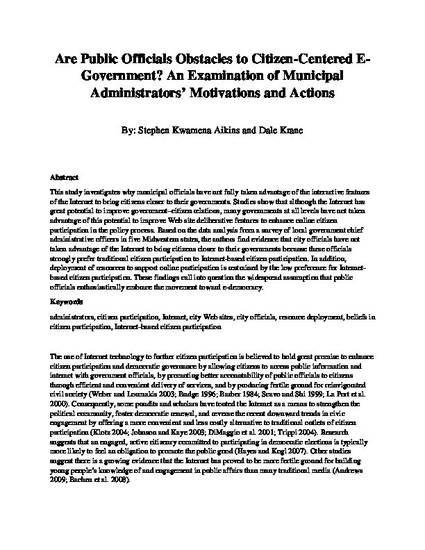
This study investigates why municipal officials have not fully taken advantage of the interactive features of the Internet to bring citizens closer to their governments. Studies show that although the Internet has great potential to improve government–citizen relations, many governments at all levels have not taken advantage of this potential to improve Web site deliberative features to enhance online citizen participation in the policy process. Based on the data analysis from a survey of local government chief administrative officers in five Midwestern states, the authors find evidence that city officials have not taken advantage of the Internet to bring citizens closer to their governments because these officials strongly prefer traditional citizen participation to Internet-based citizen participation. In addition, deployment of resources to support online participation is restrained by the low preference for Internet-based citizen participation. These findings call into question the widespread assumption that public officials enthusiastically embrace the movement toward e-democracy.
Available at: http://works.bepress.com/dale_krane/7/
